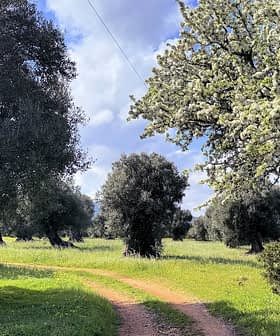 12K reads
12K readsOlive Varieties
An agriculture company and the University of Córdoba believe they have bred a new olive variety that will “revolutionize” high-density plantations. However, they are not ready to give out all the details yet.
“We will be releasing information about Sultana in a staggered manner, giving more details throughout the year,” Juan Jiménez, a spokesman for Balam Agriculture, told Olive Oil Times.
We are convinced that Sultana will reign in high-density olive groves; whoever bets on this variety today will have a competitive advantage tomorrow
A blog post on the company’s website shared what is publicly known about the new Sultana variety.
Sultana was one of 1,400 olive genotypes with which the company experimented in partnership with the University of Córdoba. The new variety is a cross of female Arbosana trees with male Sikitita trees. Sikitia is a cross between Arbequina and Picual trees.
See Also:How Intensive Agriculture and Olive Cultivation Impact Soil HealthBalam will have exclusive rights to produce and sell Sultana seeds in Europe for 30 years as part of its agreement.
Pedro Valverde, a researcher from the University of Córdoba, said Sultana has the best attributes of the Arbosana, Picual and Arbequina olives.
“Sultana is characterized by its early ripening and early production; it has a good fat yield,” he said. “Due to its size and vigor, it adapts perfectly to high-density production, and its fruit is larger compared to the rest of the varieties for this type of plantation. In addition, the oil is of very high quality.”
Pedro Gálvez, a partner at Balam Agriculture, added that Sultana olives could be harvested and transformed before other varieties, allowing bottles of Sultana olive oil to be sold before other varieties are harvested and milled.
However, there are still a lot of unknowns surrounding the novel olive variety. Neither party provided much detail about the first commercial harvest, simply labeling it a success. They also did not say when the wider olive oil world and the general public could sample the olive oils for themselves.
Additionally, they did not mention where the new variety would grow best and whether it would be resistant to common pests, including the insects that spread the deadly olive tree pathogen, Xylella fastidiosa.
They also did not say whether Sultana is a drought-resistant variety at a time when Andalusia and much of the Mediterranean basin are becoming hotter and drier.
However, Gálvez was bullish about the future of the new olive variety at the unveiling ceremony held earlier this month in Córdoba.
“We are convinced that Sultana represents a before and after in the production of high-density olive groves,” he said. “We are faced with a variety with a profitability well above all those that have been marketed to date.”
“We are convinced that Sultana will reign in high-density olive groves; whoever bets on this variety today will have a competitive advantage tomorrow,” Gálvez concluded.








